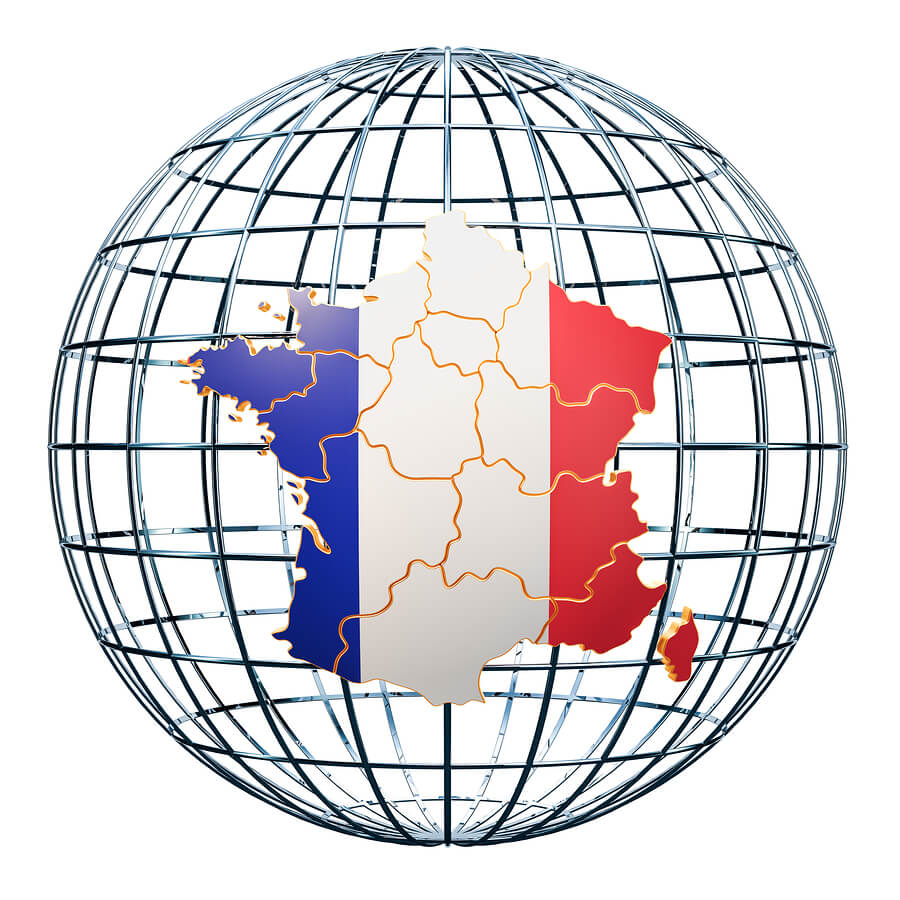The French Language Around the World
Last Updated On: January 13, 2022 by The Migration Translators

The French Language Around the World
French is often called the love language. Because of its close association with Paris, it creates the image of a romantic cobblestone narrow alley lit up with the softly glowing iconic Parisian street lighting. French does, of course, originate from France, but it has spread throughout the world, and today there are several French variations some of which are indistinguishable from standard French while others have developed their own idioms and nuances.
Standard French from France
This French variety which is spoken throughout France is called le français neutre, meaning neutral French”, and it can be heard spoken by 50 million-plus people both in and close to France. It is heavily influenced by the Académie Française, the main official administrative body which makes most of the grammatical and lexical decisions about what should be included in the French language and is found in dictionaries. Standard French is the French that is typically taught at language classes throughout the world.
Canadian French and Quebec French
It might be a surprise to know that there are 6.2 million people who speak French who live in Quebec and more than 700,000 speakers in other parts of the country. Montreal uses French in several contexts including in the media, education and the government. Canadian and Standard French isn’t different but is much the same language, meaning that speakers of both the two supposed dialects can easily understand one another. However, there are a few important differences in vocabulary that you must get right. For example, in Canadian French, the word plein(e) as an adjective means “full up with food”, while in France its meaning is “pregnant.”
African French
There are actually more people who speak French who reside in Africa than in Europe. There are some countries in West Africa that have French as either the official or joint-official language. Overall it is estimated that there are 120 million individuals in Africa who speak French. They are not all exactly the same as standard French. In Abidjan which is Ivory Coast’s economic capital, there are many loanwords which come from Mandinka such as une go, that means girlfriend or just girl, and the phrase un bra-môgô, that means “dude.” In a few more urbanized areas there is a new type of French evolving which is called Français Populaire Africain. It was, to begin with, associated with the lower classes, but has recently been adopted as the preferred language among the upper classes, and is now socially accepted.
Belgian French
French is typically the 2nd most common Belgium language and is spoken as a native language by about 4.5 million individuals which are 40 per cent of the country’s population. Belgian French mimics Standard French with just a few rather subtle vocab. differences. One clear example in standard French is the word “potatoes” which are pommes de terre but in Belgian French they are patates. Also in standard French, a “sofa” is canapé but in Belgian French, it refers to a divan.
From the continent of Europe through to Africa and North America, French is growing rapidly as a popular global language. From this, there is developing several versions of French accompanied by unique accents, vocabulary and idioms. Much of today’s French slang originates from North African Arabic, which is spoken in Tunisia, Algeria and Morocco. Some slang is used among friends and families who come from the outside of the vast French cities.
The best way to learn French is in a country where you are likely to stay the longest. You can learn from a native speaker so that when you speak your new language you will sound more like a native than learning Standard French in a classroom in France.



